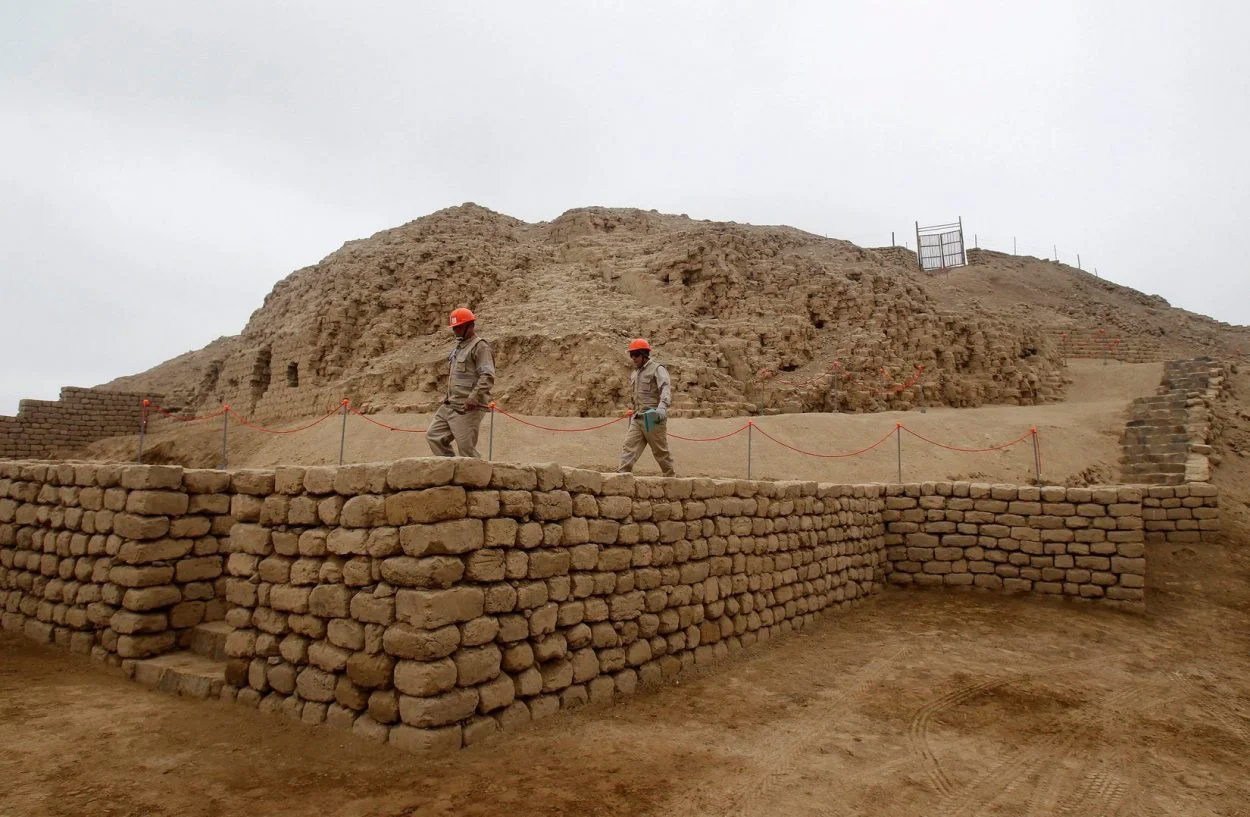Archaeologists from the University of Warsaw have found several burials containing elite Wari craftsman in the Castillo de Huarmey mausoleum.
Castillo de Huarmey, meaning “the Castle on the River Huarmey”, is a pyramid-like burial complex in the Ancash Region of Peru.
The site was thought to be a cemetery for royalty of the Wari culture, a pre-Inca Middle Horizon civilisation that flourished in the south-central Andes and coastal area of modern-day Peru from around AD 500 to AD 1000.
Seven burials have been uncovered in the “Gallery of Elite Craftsman”, consisting of four adults and three teenagers, along with hundreds of deposited tools, an axe, knives, and raw materials for plaiting baskets.
The discovery has overturned the previously held theory that Castillo de Huarmey was simply just a royal cemetery, instead now revealing that the site was also a place for ancestral worship, a place of handcraft production and a necropolis for society elite.
Professor Miłosz Giersz, Head of the Department of Archaeology of the Americas at the University of Warsaw said: ” This discovery confirms what we expected from previous years: both men and women buried in Castillo de Huarmey were devoted to the highest-class craftsmanship and produced elite products of their era.”
Previous excavations discovered a tomb containing 60 human bodies buried in rows in a seated position, bodies of royal Wari women, in addition to 1,300 items made of gold, silver, bronze, precious stones, wood, bones and shells, as well as decorated ceramics.
It has also been suggest that the royal bodies were repeatedly removed from the burial chambers, presumably for royal displays during the Wari era, an indication of royal ancestor worship.
Header Image : Castillo de Huarmey – Copyright : Alamy





